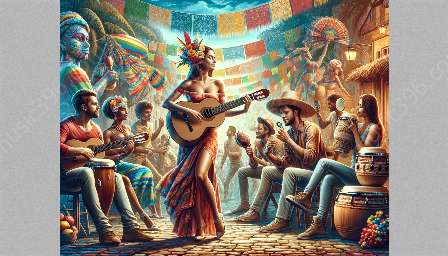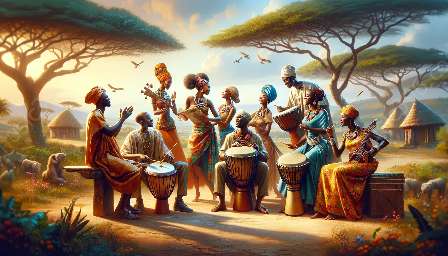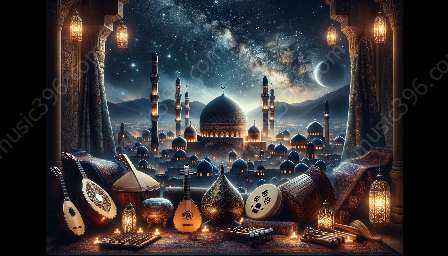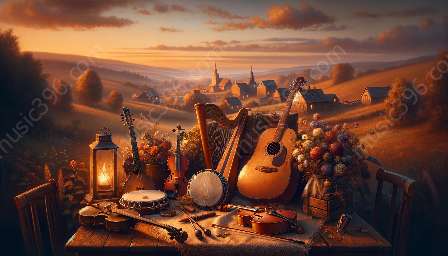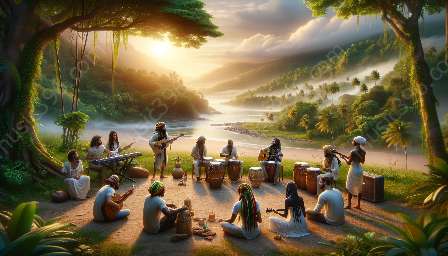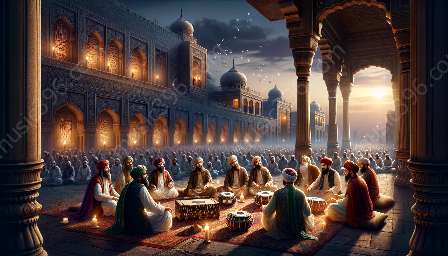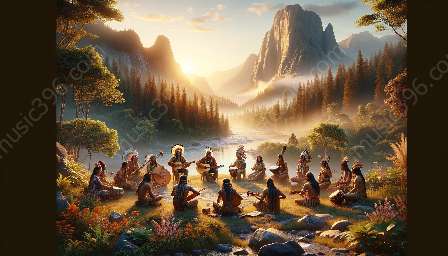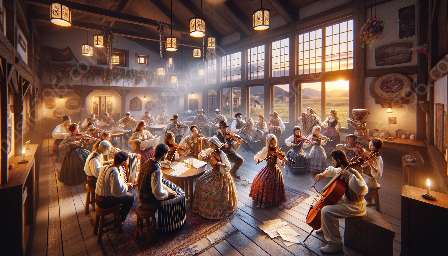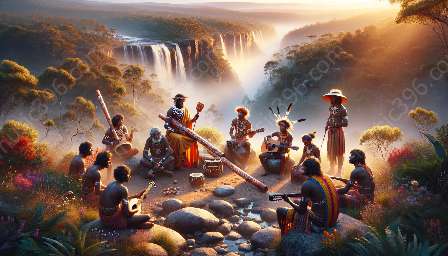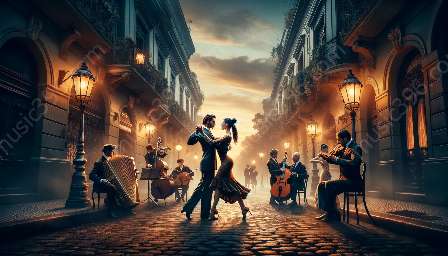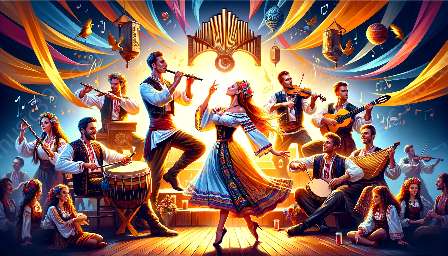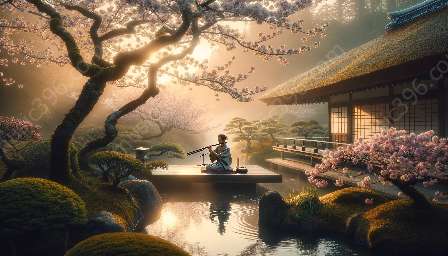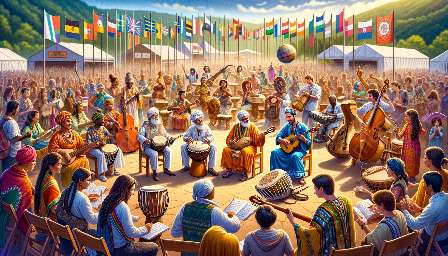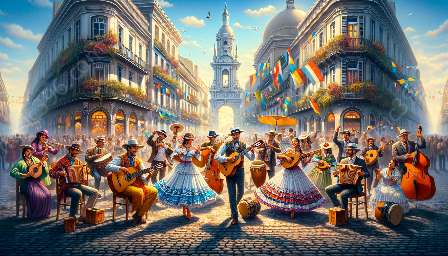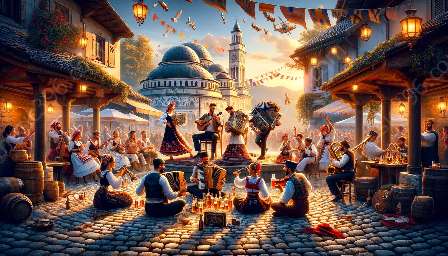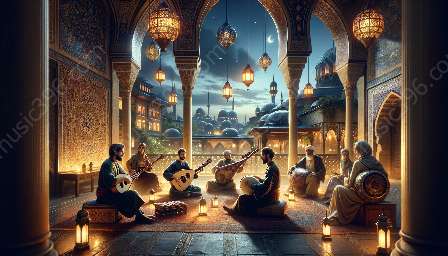Bossa Nova: A Journey into the Soul of Brazilian Music
Originating in the vibrant streets of Brazil, Bossa Nova is a genre of music that has captivated audiences with its mesmerizing rhythms, alluring melodies, and rich cultural heritage. For non-Brazilian musicians, delving into the world of Bossa Nova offers a unique opportunity to explore the depths of this enchanting musical tradition and incorporate its essence into their own artistic expressions.
The Origins of Bossa Nova
Bossa Nova emerged in the late 1950s and early 1960s in Rio de Janeiro, Brazil, where it flourished as a fusion of samba rhythms with jazz harmonies. Influenced by the cultural and social dynamics of Brazil, Bossa Nova carries the essence of the country's coastal rhythms, melding them with a sophisticated musical language that speaks to the soul.
At its core, Bossa Nova is characterized by its delicate guitar rhythms, subtle percussion, and smooth melodies, creating an intimate and expressive musical experience.
Understanding Bossa Nova's Essential Elements
As non-Brazilian musicians approach the art of interpreting Bossa Nova, it's crucial to delve into the genre's fundamental elements. This includes grasping the unique syncopated rhythms, the harmonic structures, and the lyrical phrasing that define Bossa Nova's unmistakable sound. Moreover, the emphasis on understated vocal delivery and lyrical storytelling play a pivotal role in conveying the emotional depth of Bossa Nova music.
Embracing the Language of Bossa Nova
For non-Brazilian musicians, immersing oneself in the authentic language of Bossa Nova is paramount to capturing its true essence. This involves studying the Portuguese lyrics and delving into the cultural narratives that infuse Bossa Nova songs with profound meaning. The poetic and introspective nature of Bossa Nova's lyrics invites musicians to connect with the emotional nuances embedded within each composition.
Aside from lyrics, mastering the intricate guitar playing and rhythmic patterns essential to Bossa Nova is essential. The gentle harmonies, subtle dissonances, and complex yet flowing chord progressions paint a vivid musical canvas that non-Brazilian musicians can artfully interpret and resonate with.
Exploring the Fusion of Bossa Nova with World Music
One of the most captivating aspects of Bossa Nova is its ability to intertwine with various styles of world music, creating a diverse and multi-layered musical landscape. Non-Brazilian musicians can explore the fusion of Bossa Nova with elements of jazz, Latin rhythms, and other global traditions, allowing for a cross-pollination of musical ideas that celebrates cultural diversity.
The rhythmic dynamism of Bossa Nova seamlessly merges with the infectious beats of Afro-Cuban percussion, while its harmonic sophistication resonates with the improvisational nature of jazz music. This fusion not only expands the horizons of Bossa Nova but also offers non-Brazilian musicians a boundless playground for creative interpretation and collaboration with musicians from around the world.
Captivating the Essence of Bossa Nova in Performance
When interpreting Bossa Nova, non-Brazilian musicians are presented with an opportunity to infuse their own unique musical sensibilities while honoring the authenticity of the genre. Whether through live performances or studio recordings, capturing the essence of Bossa Nova involves embracing its nuances of rhythm, harmony, and lyrical expression.
The gentle sway of Bossa Nova's rhythmic groove, the sultry melodies, and the intimate storytelling through lyrics create a mesmerizing atmosphere that draws audiences into a world of emotional depth and musical enchantment. Non-Brazilian musicians can weave their artistic interpretations into the fabric of Bossa Nova, creating a harmonious dialogue between traditions and contemporary influences.
Conclusion: A Musical Dialogue between Cultures
As non-Brazilian musicians embark on their journey to interpret Bossa Nova, they embark on a musical dialogue that transcends geographical boundaries and embraces the universal language of music. By immersing themselves in the heritage of Bossa Nova and intertwining it with diverse musical traditions, non-Brazilian musicians can create a harmonious bridge between cultures, offering a unique perspective while honoring the authenticity of this captivating musical genre.
Embarking on this musical journey brings forth a world of rich cultural exchange, artistic exploration, and creative collaboration, celebrating the captivating essence of Bossa Nova within the universal embrace of world music.

